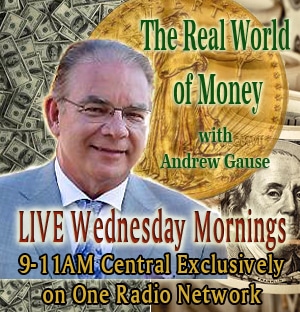During Saturdays Show, (Jan 24 -’09) Patrick alluded to the fact the the AMA, The Drug Companies, The Banks, The Fed and "The Powers Theat Be" are virtually all the same people. A listener suggested he was conspiracy crazy. Read below how during this "Tight credit market" this 68 Billion Dollar deal is being financed by the same banks that recieved our money during Bailout Part One.
TRENTON, N.J. »
The announcement Monday by No. 1 drugmaker Pfizer Inc. that it is
buying No. 12 Wyeth for $68 billion creates a deal that will quickly
boost Pfizers revenue and transform it overnight into a more
diversified company less reliant on its dwindling drug pipeline.
Pfizer managed with one stroke to overshadow a full house of issues
— a 90 percent drop in income, a hefty charge to end an investigation,
a severe cut in its dividend, a shockingly low profit forecast for 2009
and 8,000 job cuts starting immediately.
Thats all on top of the colossal problem triggering this deal —
the expected loss of $13 billion a year in revenue for cholesterol
fighter Lipitor starting in November 2011, when it gets generic
competition.
Pfizers plans to cut 10 percent of its work force are part of what
it expects will be a staff reduction totaling 15 percent of the
combined companiesworkers — implying a total job loss of almost
20,000.
By buying Wyeth, Pfizer will mutate from a maker of blockbuster
pills to a one-stop shop for vaccines, biotech drugs, traditional pills
and nonprescription products for both people and animals.
The cash-and-stock deal, one of the industrys biggest ever, is
expected to close late in the third quarter or in the fourth quarter.
It comes as Pfizers 2007 fourth-quarter profit takes a brutal hit from
a $2.3 billion legal settlement over allegations it marketed pain
reliever Bextra and possibly other products for indications that had
not been approved.
Pfizer aims to increase sales in emerging markets, enhance its
ability to treat specific diseases such as Alzheimers and become a top
player in vaccines and biologic drugs, which are made from living
cells.
Pfizer, the maker of impotence pill Viagra and Detrol for
overactive bladder, said it will pay $50.19 per share for Wyeth, a 14.7
percent premium to the companys closing price of $43.74 Friday.
Pfizer shares closed down $1.80, or 10.3 percent, to $15.65 Monday.
Shares of Wyeth, which sells Centrum vitamins, antidepressant Effexor
and biotech arthritis and psoriasis treatment Enbrel, ended 35 cents
lower, at $43.39.
Analysts were split on how good the deal is but saw little benefit for consumers.
"This deal doesn’t bring Pfizer the cure for Lipitor" revenue
losses, but it brings short- and long-term cost savings, said Erik
Gordon, biomedical analyst and professor at University of Michigans
Ross School of Business.
Analyst Steve Brozak of WBB Securities said it still doesn’t solve
Pfizers long-term problem of not having enough promising drugs in its
pipeline. "The question becomes what are they going to do to fill that
research gap."
The deal is being financed by five banks — Bank of America Merrill
Lynch, Barclays, Citigroup, Goldman Sachs and J.P. Morgan Chase. The
tie-up will bring about $4 billion in cost savings by the end of 2012
and should add to Pfizers earnings per share in the second full year
after closing.
Both companiesboards of directors approved the deal but Wyeth
shareholders must do so. The deal is likely to be reviewed by the
Federal Trade Commission.
Shortly after announcing the Wyeth deal, Pfizer said fourth-quarter
profit plunged on a charge to settle investigations into off-label
marketing. The company earned $268 million, or 4 cents per share,
compared with profit of $2.72 billion, or 40 cents per share, a year
prior. Revenue fell 4 percent, to $12.35 billion from $12.87 billion.

'Pfizer deal to buy Wyeth is financed by the big banks with our money' has no comments
Be the first to comment this post!